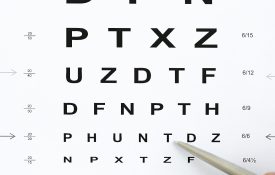-
New Research From Clinical Psychological Science
Read about the latest research published in Clinical Psychological Science: The Role of PTSD, Depression, and Alcohol Misuse Symptom Severity in Linking Deployment Stressor Exposure and Post-Military Work and Family Outcomes in Male and Female Veterans Brian N. Smith, Emily C. Taverna, Annie B. Fox, Paula P. Schnurr, Rebecca A. Matteo, and Dawne Vogt The authors examined the relationship among deployment stressors, post-military work, and family quality of life in male and female veterans who had returned from military deployment in Afghanistan or Iraq within the preceding 2 years.
-

Genetic Differences Linked With Social Mobility
Data from over 6,000 twin pairs indicate that genetic differences account for nearly 50 percent of the variation in social mobility in families.
-

Individualistic Practices and Values Increasing Around the World
Individualism is thought to be on the rise in Western countries, but new research suggests that increasing individualism may actually be a global phenomenon.
-

Asking Questions Increases Likability
New research suggests that asking more questions—and in particular, asking more follow-up questions—increases people’s positive impressions.
-
New Research From Psychological Science
Read about the latest research published in Psychological Science: Alpha-Band Oscillations Enable Spatially and Temporally Resolved Tracking of Covert Spatial Attention Joshua J. Foster, David W. Sutterer, John T. Serences, Edward K. Vogel, and Edward Awh It has been suggested that oscillatory activity in the alpha-frequency band is integral to spatial attention; research shows that alpha-band activity tracks the specific location a person is attending to. However, a key untested prediction of the relationship between alpha-band oscillation and spatial attention is that the topography of alpha-band activity also tracks the time course of covert orienting.
-

Visual Illusion Could Help You Read Smaller Font
Visual acuity is thought to be dictated by the shape and condition of the eye but new findings suggest it may also be influenced by perceptual processes in the brain.

